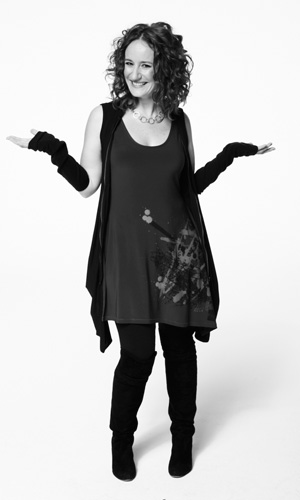Our talk with danah boyd, Senior Researcher at Microsoft Research. She studied at Brown, MIT Media Lab, and UC Berkeley, and was named "High Priestess of the Internet" by the Financial Times.
@font-face { font-family: 'FCKaiserCondWebRegular'; src: url('/sites/all/themes/fc_v1/scripts/mod2011/fckaiser-cond-web-regular-webfont.eot'); src: url('/sites/all/themes/fc_v1/scripts/mod2011/fckaiser-cond-web-regular-webfont.eot?#iefix') format('embedded-opentype'), url('/sites/all/themes/fc_v1/scripts/mod2011/fckaiser-cond-web-regular-webfont.woff') format('woff'), url('/sites/all/themes/fc_v1/scripts/mod2011/fckaiser-cond-web-regular-webfont.ttf') format('truetype'), url('/sites/all/themes/fc_v1/scripts/mod2011/fckaiser-cond-web-regular-webfont.svg# FCKaiserCondWebRegular') format('svg'); font-weight: normal; font-style: normal; }
.kaiser, .kaiser a {font-family: 'FCKaiserCondWebRegular', Helvetica, sans-serif !important; font-weight: normal; letter-spacing: 1px; line-height:1; font-size:40px!important;color:#333; text-decoration:underline;}
.kaiser a:hover {color:#666;}
.kaiser {text-decoration:none;font-size:30px!important;}
.sidebox {float:right;border:1px solid #e6e6e6;background-color:#fafafa!important;width:200px;padding:5px;margin:0px 0px 10px 10px;}
.sidebox a {color:#e80681;font-weight:bold;}
.sidebox p {font-size:13px;}
 Photo by Brooke Nipar
Photo by Brooke Nipar
First of all, this isn't a typo: danah boyd doesn't use capital letters in her name. In fact, she had her name legally changed, in part to specify no capitals. She explains it all on her blog. She explains a lot of things there: her music tastes, her sexuality, her clothing tastes, and her love of technology. boyd majored in computer science at Brown, did graduate work at MIT, went to Burning Man, got a PhD at Berkeley, did work at Intel, Google, Nokia--and today, at Microsoft Research, is one of the world's foremost experts on the culture of technology. I met with her at New York University, where she teaches; she had a student with her when I arrived; Chris Poole, the founder of websites 4chan and Canvas, was waiting for her as I walked out.
boyd is authoritative and insightful. She's excited about what technology brings society, and anxious about how it will impact those left out by the changes--and how they will react. "There's a difference between the broadcast and networked worlds," she says. "Command and control and hierarchical structures are being disintegrated. Big companies are trying to make that slow down. They have massive internal structural issues."
"There are all kinds of reasons to be afraid of this economy," she continues. "Everything in the corporate world is set up for security, so you can get to the next review. People who are willing to be uncertain will be more likely to be able to move ahead. People ask me, Are you afraid you're going to get fired. That's the whole point: not to be afraid. That doesn't mean I want to get fired."
Meet The Rest Of Generation FluxOther Flux-ers recommended by danah boyd.
Andrew Monroy-Hernandez Postdoctoral Researcher, Microsoft Research @andresmh
Anil Dash Entrepreneur/Writer @anildash
Biella Coleman Author, Coding Freedom: The Aesthetics and the Ethics of Hacking @biellacoleman
Chris Poole Founder, 4chan @moot
Christina Xu Outreach Coordinator, MIT Center for Civic Media @chrysaora
Ethan Zuckerman Co-founder, Global Voices / Director, MIT Center for Civic Media @ethanz
Jacob Appelbaum Computer Researcher and Hacker, University of Washington @ioerror
Jane McGonigal Author, Reality is Broken: Why Games Make Us Better and How They Can Change the World @avantgame
John Palfrey Co-director, Berkman Center for Internet & Society @jpalfrey
Kati London Director of Product, Zynga @picklesnumber1
Kenyatta Cheese Co-Creator, Know Your Meme @kenyatta
Tim Hwang Co-founder, ROFLCon @timhwang
Tricia Wang Ethnographer, Tech Researcher, Sociologist @triciawang
Younger people have an advantage in this shifting environment, she says. "Change in mindset is both temporal and lifestage: In your 20s, you don't have wide perspective, but you have great passion, and so you will race into situations without understanding the complications. Naivete is a value. The tech industry values it." On the other side, she notes, "as you get more perspective over time, you get more conservative, with a small c. You approach problem solving differently--less radical, guns blazing. Instability is part of the joy and fun of the young."
For everyone else, learning how to embrace instability is the challenge. "What do you do to get everyone engaged on this journey? We all have to learn new skills. Being able to live on one set of skills over a career is not realistic. Change is going to happen, not all of it good, in serious ways. Optimists look to all the excitement. Pessimists look to all that gets lost. They're both right. How you react depends on what you have to gain versus what you have to lose. Some are hoping they can duck and it will go away."
boyd points to Rupert Murdoch as a corporate leader who had (until recent troubles) been able to take advantage of change: "Murdoch thinks of it as surfing--not just surfing a wave, but preparing to surf the next wave. There will always be some business people who take risks for the rest of their lives. But I'm not sure society writ large can handle that kind of instability. All we want is certainty."
For big public companies that are measured on quarterly performance, she says, "long-term experiments are really hard, the pressures are antithetical. How do you engender risk and reward?" Many companies try to carve out space for special groups, she notes. "But internally that can provoke jealously and battles. If you try to innovate in a known space, you create turmoil among employees--and it usually blows up pretty badly."
Microsoft's motion-sensor Kinect came out of the company's research lab in Beijing, away from the company's day-to-day business, she notes. "There was a steel umbrella put over it, to keep out the rest of the organization. Then Microsoft Research threw Kinect over the wall to the Xbox group, which created their own steel umbrella to shield it. They added some scaffolding, but this was an innovation that was mostly done in-house. It can happen in a big company. Of course, this is entirely the reverse of the way Office/Windows development happens."
boyd argues that the best place "to create steel walls is in businesses outside your core cash cows. The role of a big company is to keep the cash cow rolling, and then build the new."
Big companies, she notes, can execute leverage and efficiency, "but efficiency has blessings and curses. Within a 1,000-person organization, not all are efficient. Plus, efficiency doesn't give you social gelling. Startups working 24-hour days is not efficient, but the process allows teams to gel and that then helps them get through the inevitable rocky times."
"Building new connections is a critical part of building a new economy," boyd says. "The American education system, as flawed as it is, is great for the creative class because of the way it mixes up networks."
"Any time there's a radical disruption, everyone rushes to reform a new power structure, to restabilize things. Some people win in this process and some people lose. Tech forces a disruption, but who gets to win? Maybe Steve Jobs is so embraced as a hero because we have this anxiety over control."
 Generation Flux
Generation Flux
Read the full feature and check out other profiles.